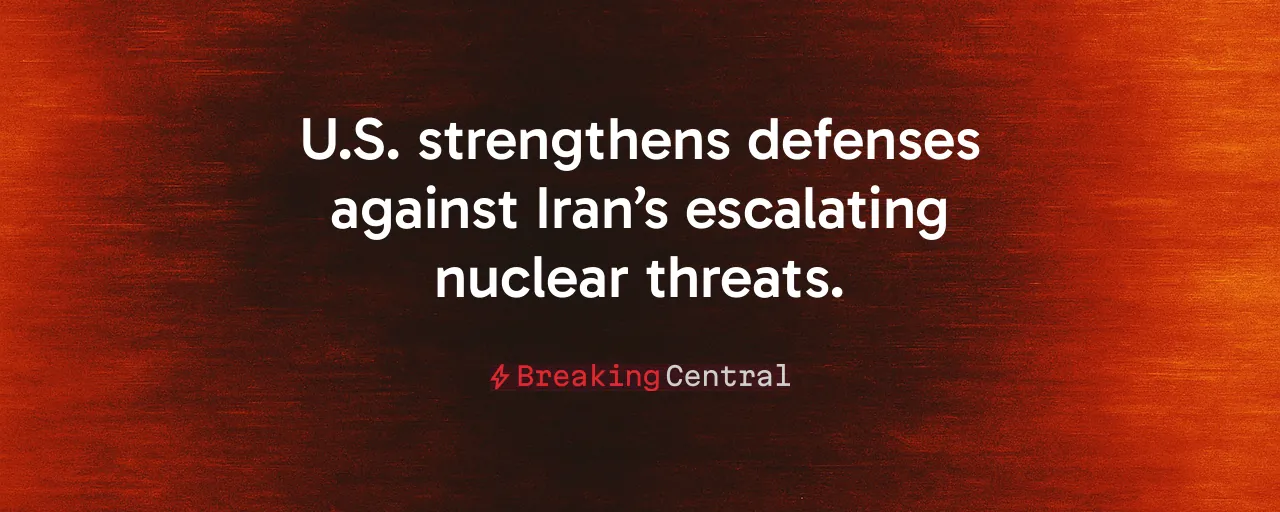A Defining Moment for American Strength
The Department of Defense faces a world on edge, where threats to American safety demand unwavering resolve. In the Middle East and Africa, terrorist networks, Iran's nuclear ambitions, and the growing reach of China and Russia test our national security. Katherine Thompson, speaking before the House Armed Services Committee, outlined a strategy that puts American interests first. This approach relies on military strength, strategic partnerships, and a clear-eyed commitment to protecting our homeland. The message is unmistakable: America will not waver.
Thompson emphasized three priorities: stopping terrorist attacks, preventing Iran from acquiring nuclear weapons, and supporting Israel's defense. These goals anchor the DOD's work in the U.S. Central and Africa Commands. They reflect a truth we cannot ignore; weakness invites aggression. With 175 Iran-backed attacks on U.S. forces since October 2024, including three American deaths in Jordan, the need for action is urgent. The Pentagon's plan blends deterrence with ally empowerment, ensuring threats are met before they reach our shores.
History shows the cost of hesitation. The 1979 Iranian Revolution sparked decades of instability, and the 2011 Iraq withdrawal fueled ISIS's rise. Today, the DOD rejects indecision. By deploying missile defenses to Israel and advising Iraqi forces against ISIS, the Pentagon signals that America stands firm. Why does this matter? Because our security, prosperity, and global influence depend on leading with strength.
Confronting Iran's Relentless Threat
Iran poses a grave danger to global stability. The International Atomic Energy Agency confirms Iran holds 408.6 kilograms of 60 percent-enriched uranium, enough for nearly ten nuclear weapons if processed further. General Michael Kurilla, CENTCOM's commander, notes this stockpile serves no civilian purpose. The DOD's response is resolute, deploying a Terminal High Altitude Area Defense system to Israel to counter this looming threat. Such actions affirm our commitment to regional security.
Iran's aggression extends beyond its nuclear program. Its proxies, Hezbollah, Hamas, and the Houthis, have launched over 175 attacks on U.S. troops since 2023, disrupting Gulf shipping and targeting our bases. The DOD has struck back effectively. In Yemen, U.S. operations restored freedom of navigation against Houthi attacks. In Iraq, local forces, guided by a small U.S. advisory team, now lead operations against ISIS. These efforts show that precise, partner-driven strategies deliver results without endless U.S. commitments.
Some advocate for renewed talks with Tehran, believing diplomacy can curb its ambitions. Yet the 2015 nuclear deal failed to halt Iran's proxy wars or missile development, and its unraveling in 2018 exposed the limits of negotiation. President Trump's demand for a deal that dismantles Iran's proxy network, backed by robust sanctions, offers a clearer path. Trusting a regime that fuels chaos across the region is a gamble we cannot afford.
Building a Stronger Africa, Securing Our Interests
Africa's 1.7 billion people and vast resources make it a critical arena for global competition. Terrorist groups like ISIS-Somalia plot attacks, while China and Russia exploit instability to gain footholds. AFRICOM Commander General Michael Langley warns that neglecting Africa risks ceding influence to our rivals. The DOD's strategy focuses on enabling African nations to lead their own security, reducing U.S. troop presence while maintaining strategic leverage.
Initiatives like African Lion 2025, uniting 52 nations and 10,000 troops, highlight this commitment. The African Chiefs of Defense Conference in Kenya fostered collaboration among 37 countries, strengthening local resolve. Programs like the Trans-Sahara Counterterrorism Partnership equip eleven African states with critical tools. With 315 drone strikes on al-Shabaab and a minimal U.S. footprint in Somalia, the DOD proves that empowering allies works. What's the alternative? Ignoring Africa invites chaos that threatens us all.
Some argue that security efforts fuel unrest, urging a focus on development instead. Yet stability is the foundation for progress. Recent coups in Mali and Niger, driven by unchecked insecurity, underscore this reality. The DOD's partnerships, including $142 billion in defense sales to Saudi Arabia and a robust presence at Camp Lemonnier in Djibouti, promote burden sharing. These steps ensure allies contribute while freeing U.S. resources to counter China's expanding influence.
Seizing a Strategic Opportunity
General Kurilla describes this moment as a rare chance to secure America's interests. CENTCOM's operations have dismantled ISIS-Khorasan networks, while AFRICOM's partnerships block China's bid for Atlantic ports. Defense Secretary Pete Hegseth's focus on long-range strike systems and missile defenses, detailed in his 2025 memo, keeps us ahead of adversaries. Deployments of two carrier strike groups and B-2 bombers at Diego Garcia reinforce our unmatched strength.
This strategy protects our homeland, secures vital trade routes, and empowers allies to stand firm. The $142 billion defense package to Saudi Arabia and NATO's push for higher defense spending demonstrate that shared responsibility strengthens our alliances. Hesitation, however, breeds vulnerability. The 1983 Beirut bombing and 9/11 showed what happens when enemies perceive weakness. Today's challenges, China's Djibouti base, Russia's mercenaries, Iran's proxies, demand bold leadership.
The DOD's approach offers a clear path forward. By countering terrorism, halting Iran's nuclear program, and outmaneuvering global rivals, we safeguard our future. Strengthening allies and projecting power ensures America leads without overextending our forces. The choice is ours: act decisively or allow our enemies to shape the world. Let's choose resolve and secure the nation we cherish.
